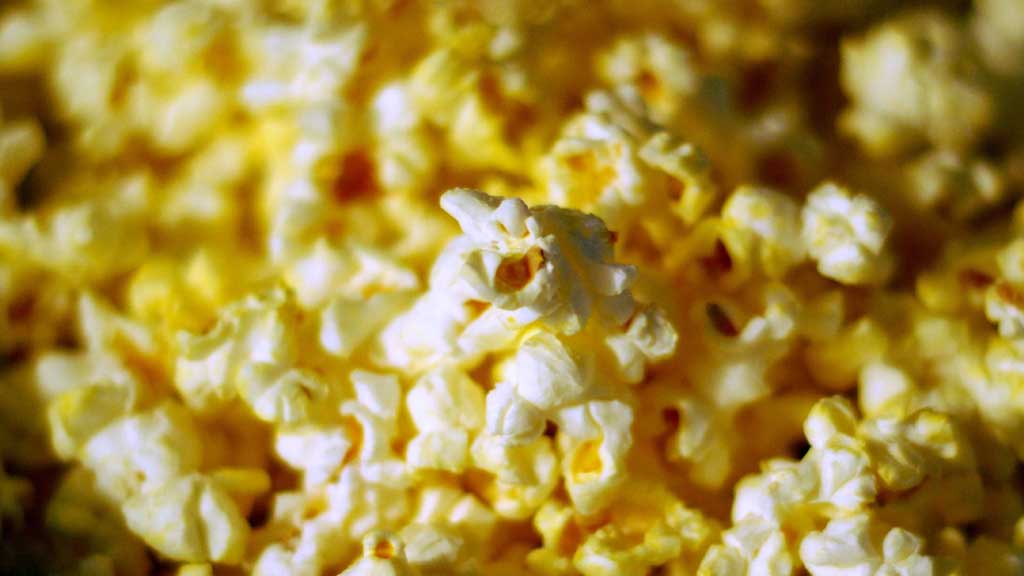Popcorn pops because of a delicate balance between a moist interior and a dry coating.

The exterior cells, the pericarp, are hard and relatively impermeable. The interior cells are soft and contain moisture.
When the seed is heated, the moisture turns to steam. The pressure builds up to the point where the hard outside pops, letting the kernel explode.
The same thing can occur with other foods, like potatoes, that are filled with soft starch. If no holes are pricked in a potato’s tough coating before it is baked, it too will explode.
If the pericarp of a popcorn kernel is scratched through, it lets the steam out and prevents popping.
If popcorn is too dry, there is not enough moisture inside to pop; if too wet, the pericarp does not hold the steam.
Homegrown popcorn should be allowed to mature on the cob so that the sugar inside is converted to starch. Further drying may be necessary after harvest.
A moisture content of about 13.5 percent to 14 percent is ideal.
Popcorn should be stored in airtight containers to protect the moisture balance.
